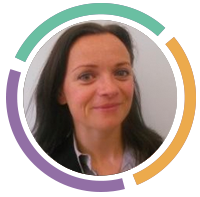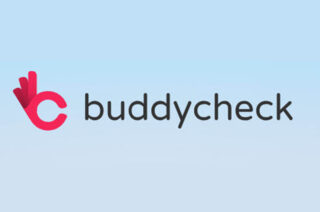Senior Fellowship for PS staff: A Conversation with Fiona Lynch SFHEA


Fiona Lynch is a Faculty Change Manager in the Faculty of Science and Engineering. She achieved Senior Fellowship of Advance HE (SFHEA) in 2020, drawing on case studies from her time as Teaching, Learning and Student Experience Officer and later a secondment in the Planning, Compliance and Special Projects Team. Here she tell us about her experience of applying for SFHEA as a member of PS staff and the benefits it has had for her career development.
What prompted you to apply for Senior Fellowship?
I completed the PG Cert in Higher Education and wanted to progress my professional development further. A colleague recommended Senior Fellowship as a potential next step. I attended an information session thinking that, as a member of PS staff, the programme would not apply to me. However, the course leaders were really supportive and I realised that my roles made me eligible to apply.
How did you find the application process and the opportunity to reflect on your own professional practice?
It was a challenging application process and I actually didn’t achieve it on the first attempt. I mistakenly wrote the application focusing on what I did and how I did it, missing out large amounts of reflection and how my work impacted others. Apparently it is something which catches many applicants out.
However, the feedback I received was really helpful and a second mentor was able to help me understand what was required. I ended up pretty much re-writing the application from scratch, which sounds daunting but being clearer about what was being asked of me made it much easier. And it made the successful outcome much more appreciated.
Can you tell us a little bit about the three case studies you used in your application?
My first case study focused on a range of public engagement activities I had developed and supported. Using what I had learned from them, I reflected on the improvements I made as I developed further resources and support for colleagues.
The second drew on my experience from the Manchester Access Programme (MAP) and how we moved from paper and email-based administration to using Blackboard. Little did we know at the time that this would be crucial to the programme during the pandemic! And the third looked at the training programme I developed for MAP tutors to enable them to better support students.
It’s important to realise that the emphasis of the application is not about what you did, but rather why you did it and what you learnt from the experience. Most importantly for Senior Fellowship, it’s how your work supports others in their ability to teach.
How did you address the D3.7 criteria for Senior Fellowship, “Successful co-ordination, support, supervision, management and/ or mentoring of others in relation to teaching and learning”?
In all my case studies I was able to evidence where my work supports others in their own teaching and learning. I used examples of where others used templates or implemented training they received from me to deliver their sessions.
My experience improving MAP course delivery by moving to an online platform enabled me to provide training to PS staff to improve the support offered to students. Academic staff were trained to ensure that they were provided with the tools and resources they needed to guide their students and they were able to apply their experience to other areas of teaching.
My third case study demonstrated how my work provided MAP tutors with the skills required to support their students. They had several CPD opportunities to gain experience of using Blackboard and Turnitin, enabling them to provide more effective assessment and timely feedback to students in line with regulations and guidelines.
What impact has achieving Senior Fellowship had on your work at the University?
It has given me a better understanding of the impact my work has had on projects and others. It has also changed my approach to certain projects, and to ensure that a lessons learned and feedback element is incorporated into projects. I also try to ensure that, where possible, there is a support framework in place and staff development is incorporated into any project requiring change and new ways of working.
What other benefits has SFHEA had for you?
The SFHEA has given me confidence in what I can deliver. I also understand the importance of reflection and critically assessing what I do. I think that I am naturally drawn to projects involving change and improvement so the framework of the application is really good to draw upon.
What would you say to PS colleagues who are considering applying for an Advance HE fellowship?
It is worth exploring. I was unsure if it would fit with a PS role but many of us do so much to support our colleagues and are unaware that our experiences lend themselves to this framework. It’s also a really positive experience to have formal recognition of the important role we play to deliver programmes across the University. There is a big time commitment involved but don’t be put off by that. It’s a really interesting and challenging piece of CPD but worth the effort and there is so much support available too.
Do you already have Fellowship (FHEA) and are looking to apply for Senior Fellowship (SFHEA)? Read our advice on transforming your Fellow application into a Senior Fellow application.


